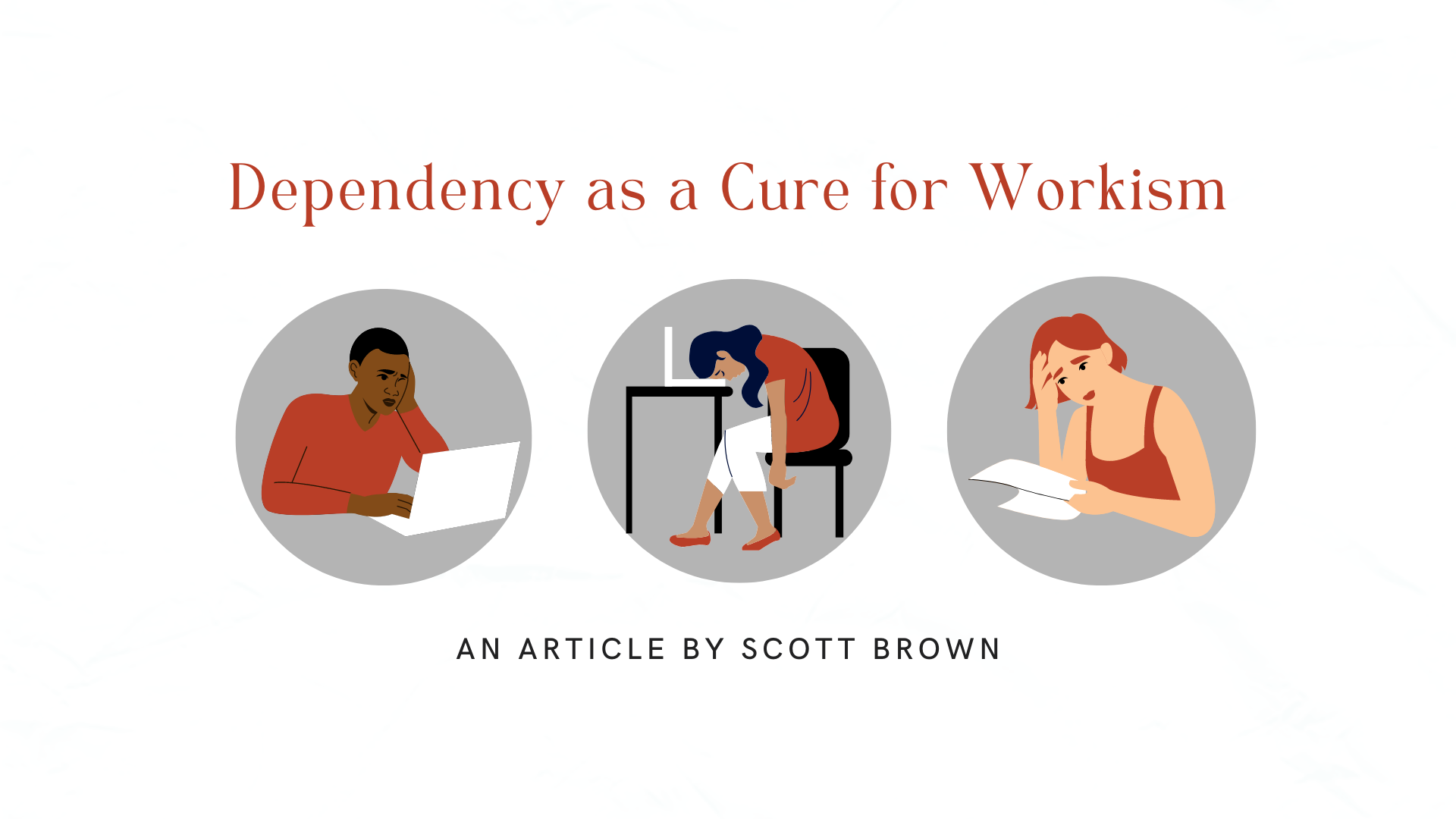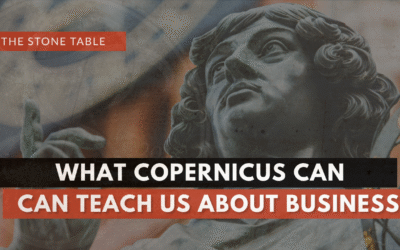Dependency as a Cure for Workism

Recently, the Lord has been leading me into a place of rest instead of study when it comes to my devotional times. I’m a big Bible nerd, so often my devotional time can be pretty intense – I’m talking lexicons, concordances, commentaries, Greek words, and more. It gets pretty wild. However, sometimes the Lord is calling us to something besides this kind of intense, work-focused “devotional” time. Sometimes, He calls us simply to be.
This is what He has been calling me to recently, something that feels awkward, inconsistent, uncomfortable, and unproductive at times, but something that results in a deeper intimacy with, a greater capacity for, and a depth of knowledge in the Lord’s heart & will.
I think this concept of “being” with the Lord is something we can use to curb the natural desire for busyness, our innate tendency for producing our own merit, and workism in our modern society.
Workism
I think workism can look different in different people. Sometimes, it looks like a valuation of oneself based on their productivity. This is the camp that I find myself naturally leaning towards, or into. Other times, it can look like pride – someone deeming themselves superior based on their works, titles, or positions. Further, workism can even look like trusting in none other than the work of your own hands to save you – a form of idolatry – or trusting alone in your paycheck, which is a similar vibe.
Workism is an inferior worship of work, something that puts work itself into the place of God in our lives. It takes away worship from the Lord of Creation and puts it into the work that we can produce in our own power – something we often see the Israelites doing in the Old Testament. (Poor Israelites, they always take the heat from modern humanity).
Ironically, we often never remove the plank from our own eye when we examine the Israelites. We say, “Worship a golden calf? I would never!” Yet, we worship our work just the same. We worship our celebrity idols, our dream jobs, our favorite Instagram influencers, or the opinions of our neighbors. “I would never”? Think again.
Workism is one way that the enemy can take away from God’s desired & deserved worship. If the devil cannot get us to worship him directly, he will get us to worship things of this world. Our work is one thing that comes into play with that misdirected worship – and this is called workism.
Worshipping our work means we are getting our sense of identity from it. It means that we put work in the place of authority, at the right hand of God the Father, and we choose to obey the demands of our workplace in order to be justified, or made right, in our lives. Workism!
It also means that we often derive our sense of self-worth, value, and life purpose from whatever we end up doing vocationally in life. Our work becomes the measuring stick for our sense of worth, which is not how God created it to be. This, too, is vanity. I mean, workism. But yes, also vanity.
Workism cannot coexist with Christianity; it is inconsistent with the orthodox Christian faith. Yet, we often try to practice them simultaneously, mixing a little self-identification in with our identity in Christ. So, no wonder we feel ourselves tossed to and fro by every wind of doctrine, no? Without making the stability of our identity in Christ the central foundation of our lives, we often turn to our positions in life, or possessions in life, to deem ourselves worthy, right, or just plain good enough. This is also a form of workism, and a grave evil.
Workism is not always as blatant as many idolatries that we think of. We cannot see a physical idol of workism in our backyard, which makes it a more subtle direction of worship. As we work and find our value in work, we lose our sense of value in Christ and what He has accomplished. Unfortunately for those practicing any form of workism, there is no salvation in work – only in Jesus. Yet, what workism promises to us is this sense of freedom through work, not freedom through Christ.
I don’t want to get too dark here, but there is an infamous quote about “working in order to be free”… And I don’t think there was any truth there. Just saying.
Just as ironic & deceptive as that quote are the false promises of workism.
Resting
Coming back to the concept of resting, though, of simply “being” with the Lord, I believe there is true freedom found there. As workism causes us to consistently press into a frenzy of workaholism, mass productivity, and toxic cycles of busyness, the resting, pausing, and forced delays of pressing into God’s presence cause us to find freedom from this kind of definition in our lives. We are set free by subjecting ourselves to God’s will, and this is the paradox of the Gospel.
Workism is no cure for identity crisis or loss. Work is not a solution to our desire for validation, it is a hiding place. It keeps us from reaching the light at the end of the tunnel by taking us on a four-hundred mile detour away from the cross and loops us back around to where we began in the first place – at square one, without a true sense of how valuable we really are.
This is not to say work itself does this, but how we use it matters. Workism is a misrepresentation of God’s perfect creation for work; it is a misdirected expression of worship, something meant alone for God.
Our motivation is important. Why are we seeking these promotions? Why are we seeking a constant pay raise? Why are we still sinking into 50+ hours of work a week to make sure we’re on top of things? Do we really need to be?
What if there was peace in contentment? Trusting in the Lord for our merit, provision, and sufficiency. I remember this verse often, a true reminder of this sufficiency:
“My grace is sufficient for you, for my power is made perfect in weakness…” (2 Corinthians 12:9).
The first step to quenching workism, and the desire for merit & identity through our work, is acknowledging our own weakness – our own insufficiency to produce salvation, deliverance, or even our own provision by our own strength.
Workism is a menacing evil that will continue to sap the power of God from our hearts, but when we choose to humble ourselves before Him, seeking His will & desire above all things, His promises are true that He will lift us up.
As Erik Cooper has said,
“We never outgrow our dependency on Jesus. True spiritual maturity is actually growing deeper into that.”
And that kind of humility, my friends, is the cure for today’s workism.
When we choose to pursue Jesus and to trust Him with all that we are, workism stands no chance to sap His power from our lives. We can commit to the Lord today and remind ourselves where our help comes from. And our help comes from the Lord.






